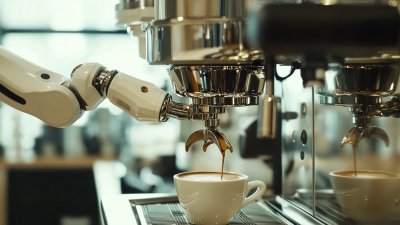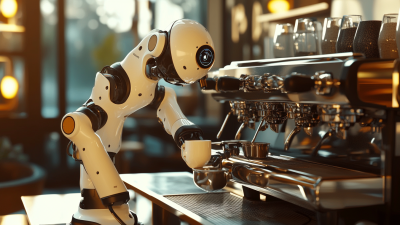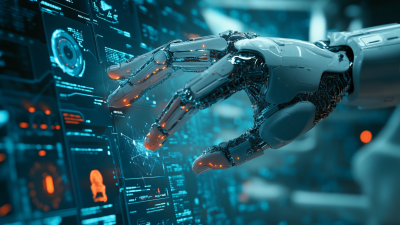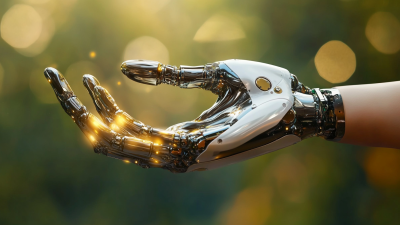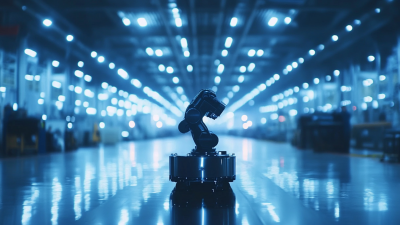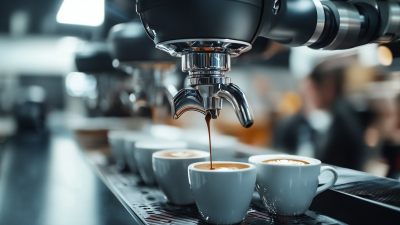Exploring Innovative Alternatives to the Robot Barista Experience
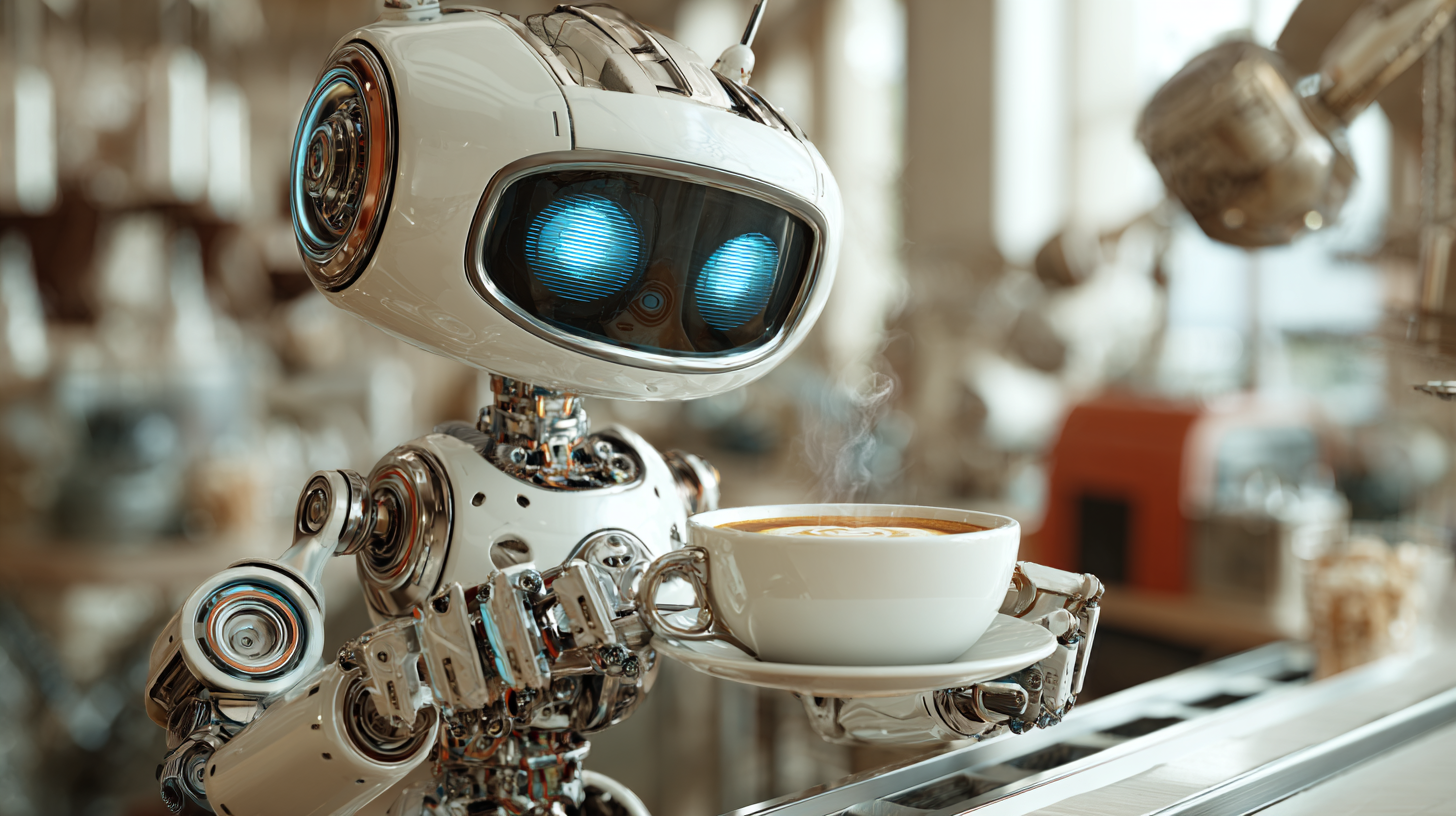 In contemporary cafés, the emergence of the Robot Barista has revolutionized the way we experience coffee, merging technology with our daily ritual.
However, as we delve deeper into the intersection of innovation and customer satisfaction, it becomes evident that there are compelling reasons to explore alternatives to the traditional Robot Barista experience.
This blog will examine not only the limitations of robotic solutions in delivering personal service but also the innovative approaches being adopted by coffee shops to enhance customer engagement,
the artistry behind coffee-making, and the importance of human interaction in creating a memorable café atmosphere.
By highlighting a spectrum of inventive alternatives, we aim to showcase how these new strategies can coexist or even surpass the efficiencies offered by the Robot Barista,
ensuring that the future of coffee culture is both exciting and authentically human.
In contemporary cafés, the emergence of the Robot Barista has revolutionized the way we experience coffee, merging technology with our daily ritual.
However, as we delve deeper into the intersection of innovation and customer satisfaction, it becomes evident that there are compelling reasons to explore alternatives to the traditional Robot Barista experience.
This blog will examine not only the limitations of robotic solutions in delivering personal service but also the innovative approaches being adopted by coffee shops to enhance customer engagement,
the artistry behind coffee-making, and the importance of human interaction in creating a memorable café atmosphere.
By highlighting a spectrum of inventive alternatives, we aim to showcase how these new strategies can coexist or even surpass the efficiencies offered by the Robot Barista,
ensuring that the future of coffee culture is both exciting and authentically human.
The Rise of Automated Coffee Solutions: Efficiency Meets Flavor
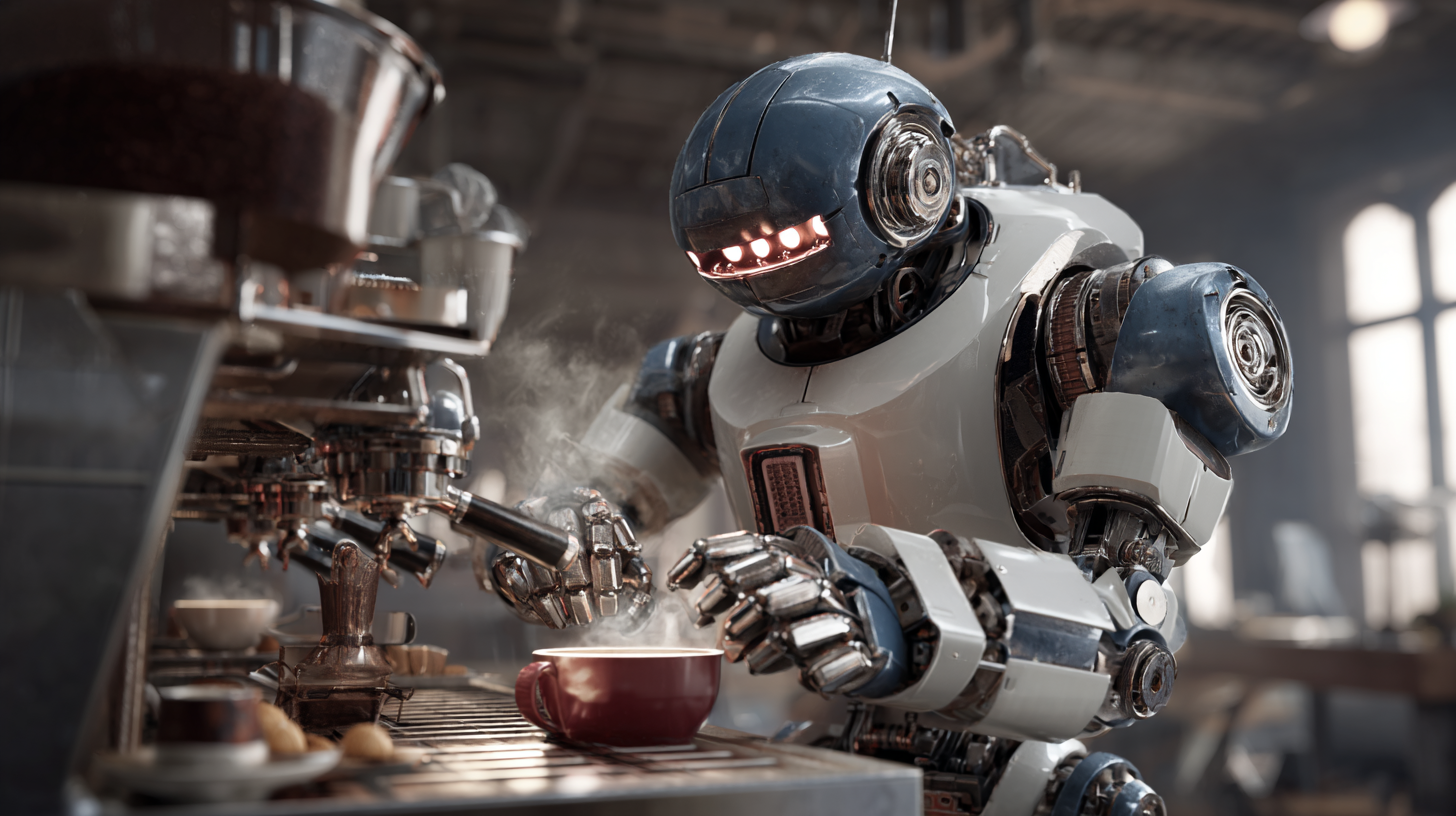 The rise of automated coffee solutions has revolutionized how we experience our daily caffeine fix. As technology advances, the efficiency of robotic coffee makers is becoming increasingly attractive to both busy professionals and coffee enthusiasts alike. These automated systems not only streamline the brewing process but also ensure consistent flavor profiles that can be difficult to achieve in traditional coffee shops. The precision of temperature control, grind size, and brewing time allows for a tailored cup of coffee that meets the specific preferences of each individual.
The rise of automated coffee solutions has revolutionized how we experience our daily caffeine fix. As technology advances, the efficiency of robotic coffee makers is becoming increasingly attractive to both busy professionals and coffee enthusiasts alike. These automated systems not only streamline the brewing process but also ensure consistent flavor profiles that can be difficult to achieve in traditional coffee shops. The precision of temperature control, grind size, and brewing time allows for a tailored cup of coffee that meets the specific preferences of each individual.
Additionally, the innovative designs behind these coffee robots add a unique charm to the coffee-making process. From sleek, modern machines that fit seamlessly into home kitchens to fun, interactive kiosks in urban settings, these automated solutions are promoting a new social experience around coffee consumption. Users are now able to engage in the craft of coffee-making while also appreciating the technological prowess that goes into crafting their beloved beverages. This blend of efficiency and flavor not only enhances the coffee-drinking ritual but also opens up a world of possibilities for customization, making each cup a personal masterpiece.
Rethinking Customer Engagement: Personalizing the Coffee Experience
In an age where technology often dictates customer interactions, rethinking customer engagement in the coffee experience provides an exciting opportunity to personalize each encounter. The traditional notion of a barista is evolving, with innovative alternatives aiming to enhance customer satisfaction by prioritizing individual preferences. Imagine walking into a coffee shop where the aroma of freshly brewed coffee is complemented by a warm smile from a staff member who knows your name and favorite order. This personal touch not only builds a connection but elevates the overall experience of enjoying a cup of coffee.
Personalization goes beyond mere recognition of a customer's usual order; it encompasses understanding their preferences, dietary needs, and even mood. Innovative coffee shops are experimenting with various sensory elements, like customizable flavor profiles and unique brewing techniques, that respond to individual tastes. Integrating technology, such as mobile apps that learn from customer behavior, can enhance this interaction further by offering tailored recommendations or special promotions. This shift towards a more personalized coffee experience invites customers to become co-creators, making each visit not just a transaction but a memorable occasion rooted in personal connection and engagement.
Exploring Innovative Alternatives to the Robot Barista Experience - Rethinking Customer Engagement: Personalizing the Coffee Experience
| Dimension |
Traditional Coffeeshop |
Robot Barista |
Personalized Experience |
| Customer Interaction |
High |
Low |
Medium |
| Speed of Service |
Medium |
High |
Medium |
| Customization Options |
High |
Low |
Very High |
| Consistency of Drinks |
Medium |
High |
High |
| Atmosphere and Environment |
Warm and Inviting |
Mechanical |
Cozy and Comfortable |
Sustainability in the Coffee Industry: Innovations Beyond the Robot Barista
The coffee industry is undergoing a transformative shift, not just through technology like the robot barista, but through a broader commitment to sustainability. According to a report by the International Coffee Organization, up to 50% of coffee production could be threatened by climate change by 2050. This alarming prediction is driving innovations that go beyond automation and focus on eco-friendly practices. Sustainable farming methods, such as regenerative agriculture and agroforestry, are gaining traction. These practices enhance soil health and biodiversity, ultimately leading to a more resilient coffee supply chain.
Tips: When sourcing coffee, choose brands that prioritize sustainability and offer transparency in their production processes. Look for certifications like Fair Trade or Rainforest Alliance, which ensure environmentally responsible practices.
Moreover, innovative coffee brewing methods are emerging that highlight sustainability without compromising quality. For instance, cold brew techniques are gaining popularity, not only for their smooth flavor but also for their lower energy requirements compared to traditional brewing methods. Additionally, advancements in packaging, including biodegradable and compostable materials, are contributing to waste reduction in the coffee sector.
Tips: Support local coffee roasters who focus on sustainable sourcing and eco-friendly packaging. This not only reduces your carbon footprint but also supports the local economy.
Exploring Sustainability in the Coffee Industry
Integrating AI and IoT in Coffee Preparation: A New Era of Brewing
The integration of AI and IoT in coffee preparation is revolutionizing the way we brew our favorite beverages. As artificial intelligence becomes increasingly sophisticated, it is transforming not just our daily routines but also the entire coffee industry. By 2025, AI is expected to enhance operational efficiencies, allowing businesses to better analyze customer preferences and improve production processes. This technology can be leveraged to fine-tune coffee preparation through real-time data, leading to a personalized brewing experience that meets individual tastes.
Moreover, the application of precision agriculture is playing a crucial role in coffee sustainability, particularly in regions like Brazil. Utilizing advanced IoT devices, coffee farmers can monitor soil conditions and crop health, significantly boosting yields while minimizing environmental impact. This farm-to-cup movement ensures that consumers not only enjoy high-quality coffee but also contribute to sustainable practices.
**Tips for Coffee Lovers:**
- Explore cafes that use AI-driven brewing methods to experience unique flavors tailored to your preferences.
- Support sustainable brands that utilize precision agriculture techniques, ensuring your coffee is both delicious and ethically sourced.
- Stay updated on the latest trends in coffee technology to find new ways to enhance your brewing experience at home.
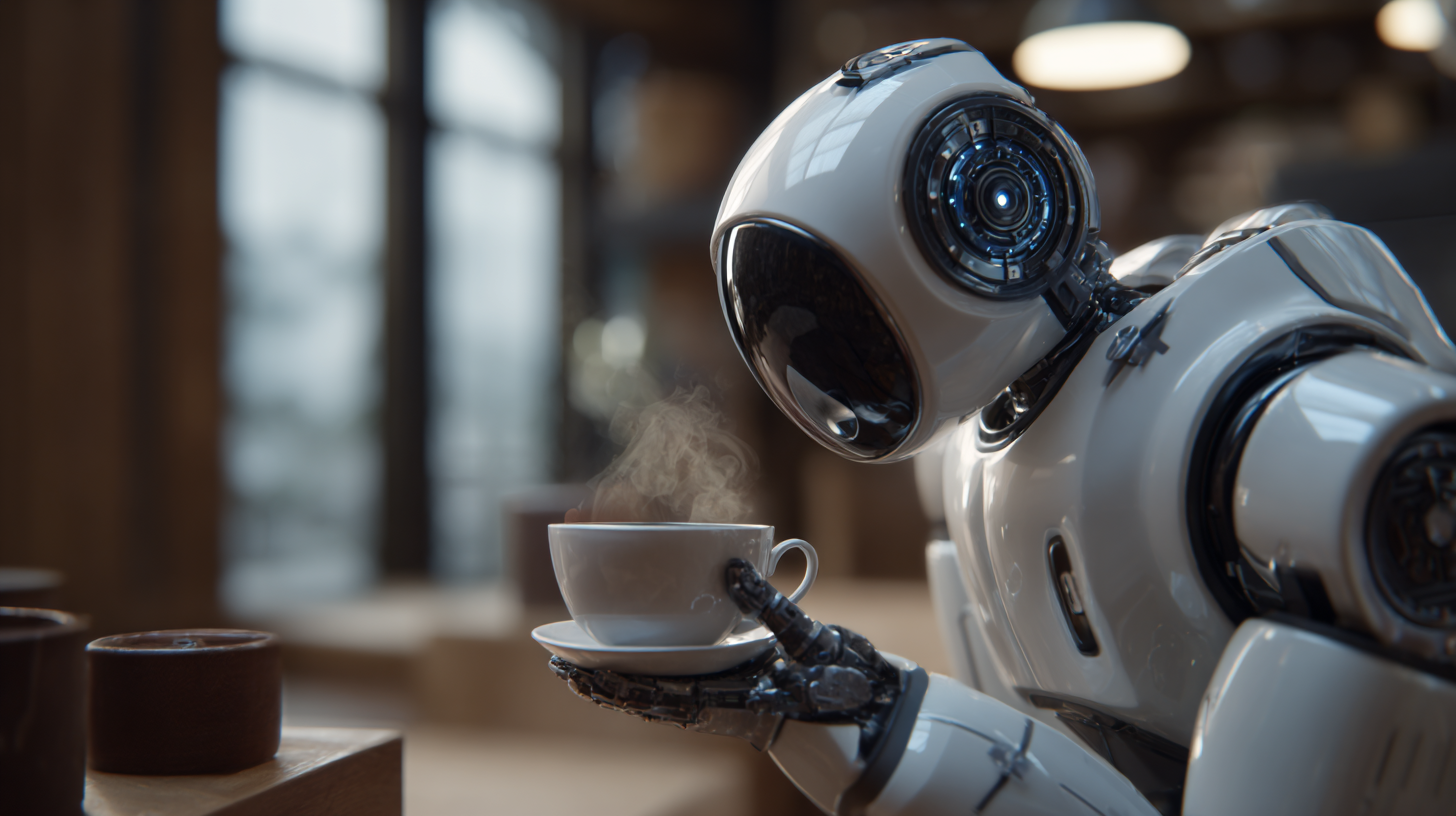
Competitive Landscape: Comparing Traditional Baristas with Automated Alternatives
The coffee industry has seen a significant shift in recent years, as the rise of automated alternatives to traditional baristas increasingly gains traction among consumers. According to a report by the National Coffee Association, approximately 60% of Americans consume coffee daily, creating a booming market that automated baristas are eager to tap into. These machines, equipped with advanced technology to brew coffee with precision, offer a consistent product and quick service that appeals to busy customers. For instance, companies like Starbucks are experimenting with robotic systems that can prepare a variety of beverages at high speed, potentially reducing wait times significantly.
However, the human touch that traditional baristas provide remains irreplaceable in many consumers' eyes. A study conducted by Technomic revealed that nearly 75% of coffee drinkers value personalized service and the ability to interact with knowledgeable staff. Traditional baristas not only craft beverages with artistry but also engage in conversations that enhance the overall experience. The challenge for automated alternatives is to find a balance between efficiency and the customer relationship that baristas foster. As the competitive landscape evolves, both traditional and automated coffee-making options must innovate to satisfy the diverse preferences of coffee lovers.


 In contemporary cafés, the emergence of the Robot Barista has revolutionized the way we experience coffee, merging technology with our daily ritual.
However, as we delve deeper into the intersection of innovation and customer satisfaction, it becomes evident that there are compelling reasons to explore alternatives to the traditional Robot Barista experience.
This blog will examine not only the limitations of robotic solutions in delivering personal service but also the innovative approaches being adopted by coffee shops to enhance customer engagement,
the artistry behind coffee-making, and the importance of human interaction in creating a memorable café atmosphere.
By highlighting a spectrum of inventive alternatives, we aim to showcase how these new strategies can coexist or even surpass the efficiencies offered by the Robot Barista,
ensuring that the future of coffee culture is both exciting and authentically human.
In contemporary cafés, the emergence of the Robot Barista has revolutionized the way we experience coffee, merging technology with our daily ritual.
However, as we delve deeper into the intersection of innovation and customer satisfaction, it becomes evident that there are compelling reasons to explore alternatives to the traditional Robot Barista experience.
This blog will examine not only the limitations of robotic solutions in delivering personal service but also the innovative approaches being adopted by coffee shops to enhance customer engagement,
the artistry behind coffee-making, and the importance of human interaction in creating a memorable café atmosphere.
By highlighting a spectrum of inventive alternatives, we aim to showcase how these new strategies can coexist or even surpass the efficiencies offered by the Robot Barista,
ensuring that the future of coffee culture is both exciting and authentically human.
 The rise of automated coffee solutions has revolutionized how we experience our daily caffeine fix. As technology advances, the efficiency of robotic coffee makers is becoming increasingly attractive to both busy professionals and coffee enthusiasts alike. These automated systems not only streamline the brewing process but also ensure consistent flavor profiles that can be difficult to achieve in traditional coffee shops. The precision of temperature control, grind size, and brewing time allows for a tailored cup of coffee that meets the specific preferences of each individual.
The rise of automated coffee solutions has revolutionized how we experience our daily caffeine fix. As technology advances, the efficiency of robotic coffee makers is becoming increasingly attractive to both busy professionals and coffee enthusiasts alike. These automated systems not only streamline the brewing process but also ensure consistent flavor profiles that can be difficult to achieve in traditional coffee shops. The precision of temperature control, grind size, and brewing time allows for a tailored cup of coffee that meets the specific preferences of each individual.

